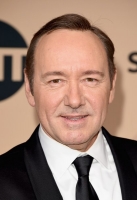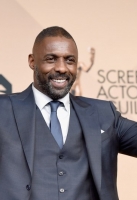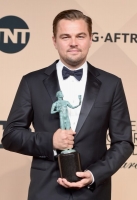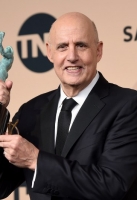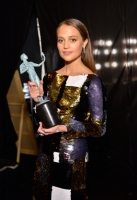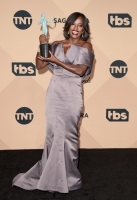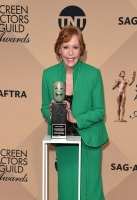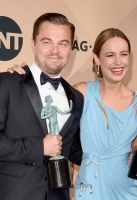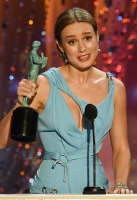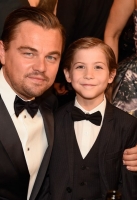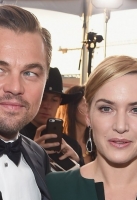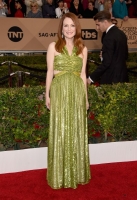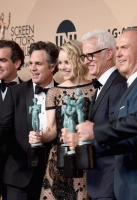Destination Star Trek Europe Celebrates 50 Years

Destination Star Trek Europe, the premier Star Trek fan event in Europe, will once again open its doors to thousands of Star Trek enthusiasts from across the universe for a three-day celebration of Star Trek’s 50th Anniversary. Set for October 7-9 at the National Exhibition Centre (NEC) in Birmingham, England, Destination Star Trek Europe will pay tribute to the characters and stories that have inspired generations of fans, joining a year of celebrations in honour of this milestone year for the franchise.
Destination Star Trek Europe, under license by CBS Consumer Products, will offer fans the opportunity to meet cast and crew, explore interactive exhibits, learn about Star Trek’simpact on science, space and technology, and enjoy parties fit for a golden anniversary.
The legendary William Shatner (Captain Kirk), will headline the event and be joined byChristopher Lloyd (Commander Kruge), Walter Koenig (Chekov), Jonathan Frakes(William Riker), Marina Sirtis (Deanna Troi), Alexander Siddig (Dr. Julian Bashir), Terry Farrell (Jadzia Dax) and Nicole de Boer (Ezri Dax). Additional guests will be revealed in the coming months.
In addition to autographs, photos and panels, fans will be able to take command of the bridge on the U.S.S. Enterprise NCC-1701 or NCC-1701-D, investigate a Borg hive, take charge of a Klingon bird-of-prey, explore a shuttlecraft, and see original props and costumes in the Destination Star Trek Museum.
Tickets are now available at www.DestinationStarTrek.com
Event organizer, Mark Woollard has said:
“For five decades, Star Trek has influenced the world around us through its voyages to the Final Frontier. Destination Star Trek Europe will honour the series’ impact and celebrate its legions of fans that are inspired to boldly go where no one has gone before.”
Star Trek celebrates its 50th anniversary in 2016. Born from the mind of Gene Roddenberry, the original Star Trek series debuted on September 8, 1966 and aired for three seasons — a short run that belied the influence it would have for generations. Launching the careers of William Shatner and Leonard Nimoy, the series also broke new ground in storytelling and cultural mores providing a progressive look at topics including race relations, global politics, the environment, and more. It spawned five more television series and 13 feature films spanning the course of half a century.
Beyond its impact on the entertainment landscape, Star Trek has also inspired some of the greatest minds steering the direction of our modern world and sparking the biggest technological advancements of our time such as the cell phone, universal translator, smart watch, tablet, sonogram, and countless other inventions. Those who cite Star Trek as an influence on their lives include Stephen Hawking, Neil DeGrasse Tyson, Elon Musk, and countless others.
Destination Star Trek Europe is organised by Massive Events, in association with Showmasters and Media 10.
Check out video interviews with the Star Trek cast from previous Showmasters events below:
10 Extreme Method Acting Performances
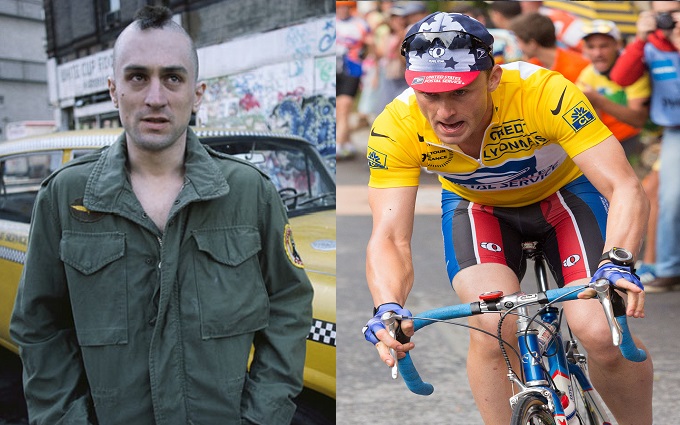
In preparation for his lead role in Stephen Frears’ gripping Lance Armstrong biopic, The Program, Ben Foster controversially admitted to taking performance-enhancing drugs in order to gain a better understanding of their effects. To celebrate the film’s release on Digital HD from 8th February and on Blu-ray & DVD from 15th February, 2016, here’s a a look at actors who went to famously extreme lengths to portray a character…
Ben Foster – The Program (2015)
Ben Foster stars as Lance Armstrong in this suspenseful adaptation that depicts the true story of how the cyclist fell from grace after partaking in the most sophisticated doping program the sport had ever seen. In order to get inside the head of the former hero and truly understand the effects of doping Foster admitted to taking performance-enhancing drugs. This is not the first time Foster has gone all out for a role as he previously ate handfuls of dirt to comprehend the hardships endured by Navy Seals for Lone Survivor and spent time living on the streets of LA for his small part in Rampart.
Adrian Brody – The Pianist (2002)
Losing 30 pounds and spending hours learning to play the piano for his role as Holocaust survivor Wladyslaw Szpilman wasn’t enough for Adrian Brody. He took method acting to a new level by giving up his apartment, selling his car, disconnecting his phone, and ultimately leaving his life behind in order to feel the same loss Szpilman felt. His actions cost him his girlfriend of the time but subsequently secured him an Oscar for best actor in 2003.
Robert de Niro – Taxi Driver (1976)
Robert de Niro’s portrayal of Travis Bickle, the disturbed insomniac taxi driver, in Martin Scorsese’s remarkable crime drama was nothing short of amazing. His strong performance can be linked to the fact that while prepping for the role De Niro actually got his cab driver’s licence. He worked 12-hour shifts for a month prior to shooting and claims that, despite his Academy recognition for The Godfather: Part Two, he was only ever recognised once.
Heath Ledger/ Jared Leto – The Dark Knight (2008) & Suicide Squad (2016)
Heath Ledger went to great lengths to prepare for the part of The Joker in Christopher Nolan’s blockbuster smash. His incredible representation was a product of locking himself in his apartment for a month prior to filming, sleeping two hours each night, and never breaking character. Crew members worried for the actor and warned him that he had taken things too far. Jared Leto appeared to take a similar approach with his highly anticipated depiction of the character by sending his co-stars strange gifts including a live rat, bullets, and a dead hog.
Joaquin Phoenix – Walk the Line (2005)
While starring as Jonny Cash in James Mangold’s award winning biopic Joaquin Phoenix spent months learning to sing and play the guitar. He then went the extra mile by only responding to people if they called him JR, Johnny Cash’s real name. He claims to be embarrassed about the situation in hindsight but maintains that being called Joaquin on the set felt wrong. He continued down the method route while preparing for Casey Affleck’s I’m Still Here by convincing the world he had quit acting and gone a little bit crazy.
Daniel Day-Lewis – Lincoln (2012)
Daniel Day-Lewis is renowned for his method approach to his roles. He spent two months in a cerebral palsy clinic for My Left Foot, learnt to track and skin animals for The Last of the Mohicans, and spared no exceptions for Spielberg’s Lincoln. During production Day-Lewis spoke with a Kentucky accent on and off set, insisted on being addressed as ‘Mr President’, and signed messages to his co-stars as ‘Abe’.
Christian Bale – The Machinist
The producers of the film claim that Christian Bale dropped from about 173 pounds in weight down to about 110 pounds in weight to make this film. They also claim that Bale actually wanted to drop down to 100 pounds, but that they would not let him go below 120 out of fear that his health could be in too much danger if he did. His diet consisted of one can of tuna and an apple per day. His 63-pound weight loss is said to be a record for any actor for a movie role. He regained the weight in time for his role in Batman Begins
Hilary Swank – Boys Don’t Cry
Hilary Swank won an Oscar for her portrayal of real life female to male transexual Brandon Teena. Swank auditioned for the role by pretending to be from a small town in Nebraska and having won over hr director then apprently lived publicly as Brandon for a month prior to filming starting. Speaking about the extreme decision Swank said ”I told everyone that I’m not going to call anyone and I’m just totally unreachable for this amount of time because you just have to totally immerse.”
Joaquin Phoenix – I’m Still Here
In 2009 Joaquin Phoenix announced he was retiring form acting to launch an unlikely new career as a rapper. Initially dismissed as a silly prank the Oscar nominee then appeared to actually be having a real breakdown as he abandoned acting and attended TV talk shows in character to promote his strange new alter-ego. His erratic behavior and increasingly disheveled appearance had many fans and critics worrying for his mental heath. Until it was all revealed to be an elaborate performance piece for his Casey Affleck collaboration I’m Still Here.
Dustin Hoffman – Marathon Man
Dustin Hoffman has collected two academy awards and seven nominations due to his astonishing method acting work in films like Rain Man. However it was on the set of intense thriller Marathon Man that his dedicated approach drew an amused reaction from his iconic co-star Laurence Olivier. Hoffman is widely acknowledged to have suffered sever self- inflicted sleep deprivation to better portray his characters increasingly delirious and distressed condition. When Hoffman questions Olivier on how he was ale to deliver such a convincingly realistic performance without any similar preparation Olivier infamously replied “Try actng, dear boy.. It’s much easier.”
Comedy Stars Most Dramatic Turns
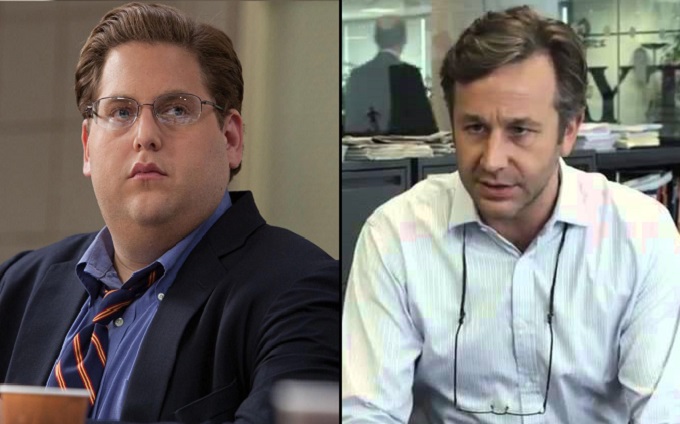
The IT Crowd funnyman Chris O’Dowd turns is a surprisingly stoic and understated dramatic performance in The Program, playing the real life Sunday Times journalist who battled to expose the Lance Armstrong drugs cheating scandal that exploded the world of professional cycling. It’s not the first time a comedian has shocked audiences by playing it serious so here’s a few interesting examples…
Bill Murray
Bill Murray was the absolute embodiment of the fast talking brash comedy genius of the 1980s. His wry smirk and wisecracking made him a household name and global box office superstar. From the zany antics of Caddyshack to the smug cynicism of Ghostbusters or Groundhog Day, Murray was undisputed comedy gold. However for many his finest achievement in front of the camera actually came in the unlikely form of Sofia Coppola’s understated drama Lost In Translation. With art imitating life Murray played an again film star openly contemplating the meaning of his life and career in the alluring company of a similarly wistful young newlywed, played by Scarlett Johansson.
Jerry Lewis
The man best known and beloved for decades of comedy roles, both solo outings such as the perennial Nutty Professor and a long screen partnership with Dean Martin, made an attempt at a serious role with The Day The Clown Died, an experiment that went so badly wrong the film has still never seen a release. But Lewis redeemed himself nearly a decade later with his performance as the object of Robert De Niro’s obsession in the brilliant The King Of Comedy. Playing a Jonny Carson-esque chat show king, Lewis brought a tired bitterness to the role that saw him stand toe-to-toe with a top of his game de Niro.
Steve Carrell
With a long career of put-upon comedy characters such as The 40-Year Old Virgin, Anchorman and, er, Date Night, Steve Carrell carved out a lucrative comedy niche on the fringes of Judd Apatow and Will Ferrell’s respective ‘gangs’. A little thing called The Office kept Carrell front and centre in people’s minds as a comic performer while more wistful film roles in the likes of Seeking A Friend At The End Of The World opposite Keira Knightley acted as a forbear to a later assault on drama with the powerful Foxcatcher and, more recently, The Big Short.
Whoopi Goldberg
Goldberg might just peddle opinions on oestrogen-fest The View these days but time was when her comedy performances in the likes of Ghost, Jumpin’ Jack Flash and Sister Act were packing in audiences around the globe. Hell, even a sperm donation comedy with Ted Danson scored bucks so it’s perhaps sometimes hard to remember that Goldberg has a hefty set of dramatic talents as well, as evidenced by memorable roles in A Colour Purple, Girl, Interrupted and How Stella Got Her Groove Back.
Jim Carrey
Known the world over for his rubber face, energetic performances and for single-handedly introducing the world to Cameron Diaz, Carrey is the consummate comedic performer who also manages to find his way back to broad laugh-riots but he too has rung the changes with a number of devastatingly effective dramatic roles. He might have started carefully with a role that blurred the line between drama and comedy in The Truman Show, but Eternal Sunshine of the Spotless Mind really proved his credentials. He’s not above the odd bit of dramatic horror, either, as the little-seen 23 shows…
Jonah Hill
The short, round star of a generation’s worth of stoner comedy – Superbad, This Is The End, The Sitter etc – Jonah Hill is built for laughs but that hasn’t stopped him making a fair amount of headway as a serious performer as well. An oft-forgotten cameo in Django Unchained and a barnstorming (albeit comedic) turn in The Wolf Of Wall Street prove the point but it’s his stone-cold serious effort in Moneyball that is the real proof of the pudding and a brilliant performance to boot.
Jennifer Aniston
Aniston has had a bit of a tough run since graduating from Central Perk to the silver screen with a career peppered with largely forgettable rom-coms. But given the opportunity, Aniston can shine as brightly as she did for a generation as Rachel Green, as her performances in the criminally underrated The Good Girl show. More recently, Cake has reminded a few people of that fact so perhaps people should give her (rather than be on a) break?
Robin Williams
Arguably the high priest of mixing comedy and drama, the genius of Robin Williams at his best was at home in either camp. Sure, he made a name as one of the best stand-up comedians ever and will be forever adored for some of his family comedies (not to mention barnstorming ad-libbing in Good Morning Vietnam), but Dead Poets Society, Good Will Hunting, Awakenings and less-seen fare such as One Hour Photo and Insomnia prove that Williams at his best is hard to beat whatever the genre.
Seth Rogen
It’s clear that there’s a clever actor trying to get out of Seth Rogen. Less talented stars wouldn’t have been able to convince audiences they’re that stoned that often, but there’s been precious little by way of a dramatic demonstration until this year’s Steve Jobs. Sure, there’s an argument that he was cast as Steve Wozniak as much for the physical resemblance as anything else but it made such a pleasant change not seeing him permanently attached to a bong that arguably no-one cared about.
Richard Pryor
Richard Pryor’s personal life might have been as dramatic as hell thanks to a hefty set of addictions, but his cinematic output was largely limited to broad (and often very, very funny) comedies. Brewster’s Millions and a repeated partnership with Gene Wilder are some of the highlights and whilst Superman 3 is arguably a fairly terrible film, Pryor’s hapless ‘villain’ is a high point. But, lest we forget, he did have dramatic props that were evidenced as early as his affecting bit part in Taxi Driver (even if he did pull a gun on Paul Schrader). His cameo in David Lynch’s Lost Highway is pretty hard to forget, too…
Chris O’Dowd
The Program isn’t exactly O’Dowd’s only foray into serious drama – he crops up in abortion drama Vera Drake, plays it largely straight in The Sapphires and impressed in Calvary – but we defy anyone not to think first of his career-making performance as Roy in The IT Crowd, his Emmy Award-winning creation Moone Boy or his breakthrough in the brilliant Bridesmaids, all of which showcase his impressive comedic chops. A sharp juxtaposition, then, to see him as whistleblower David Walsh in The Program, a man who singlehandedly brought down one of the 21st century’s most undeserving heroes with blistering style.
The Program is released to digital platforms on February 8th and on Blu-ray and DVD on February 15th
Screen Actors Guild Awards Winners 2016
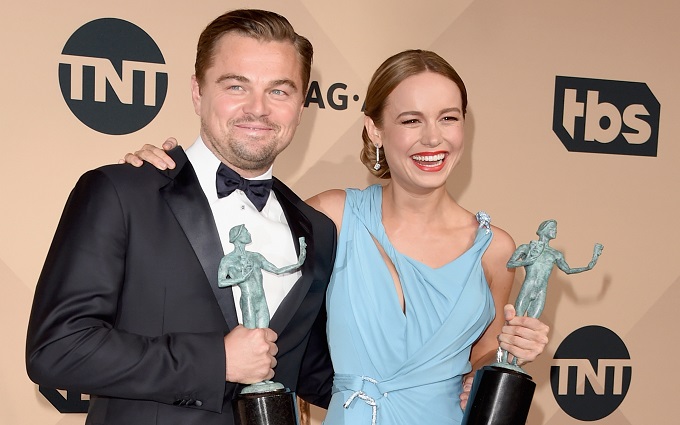
The winners for the Screen Actors Guild Awards 2016 have been announced at a star sudden ceremony. Spotlight took home top honours for film with Leonardo Di Caprio and Brie Larson landing predictable acting wins. Meanwhile double wins for Idris Elba, Viola Davis, Queen Latifah and Uzo Aduba meant the event is already being widely praised for its ‘diversity’ in the shadow of this year’s ongoing Oscar nominations controversy.
Full list of winners and a gallery of pictures below:
Best Film – Spotlight
Best Actor – Leonardo Di Caprio The Revenant
Best Actress – Brie Larson Room
Best Supporting Actor – Idris Elba Beasts of No Nation
Best Supporting Actress – Alicia Vikander The Danish Girl
TV Drama – Downton Abbey
TV Comedy – Orange Is The New Black
TV Drama Actor – Kevin Spacey House Of Cards
TV Drama Actress – Viola Davis How To Get Away With Murder
TV Comedy Actor – Jeffrey Tambor Transparent
TV Comedy Actress – Uzo Aduba Orange Is The New Black
Actor TV Movie/Miniseries – Idris Elba Luther
Actress TV Movie/Miniseries – Queen Latifah Bessie
Film Stunts – Mad Max Fury Road
TV Stunts – Game Of Thrones
Spotlight Review
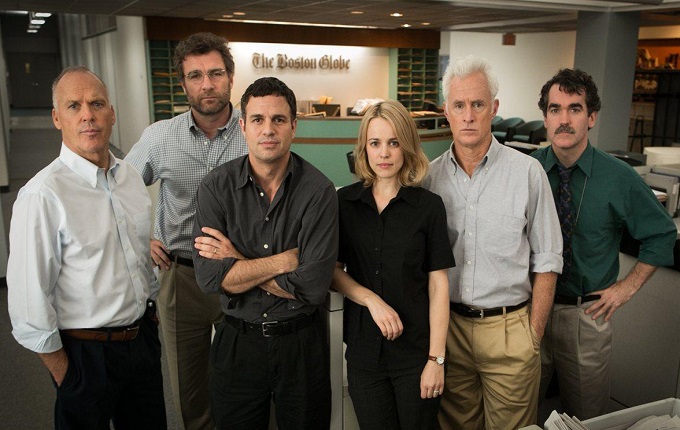
The Plot:
Inspired by actual events, Spotlight dramatically documents the efforts of the investigative reporting team of the Boston Globe to expose epidemic levels of child abuse within the Catholic Church and the subsequent systematic cover up by high ranking church officials.
The Good:
Spotlight is a truly Oscar worthy drama built around a tragic real life story of investigative reporters uncovering a horrible truth. The film laudably handles the more sensitive aspects of its subject matter with care and compassion, avoiding the obvious dangers of delving into the most graphic events for sensational shock value. The focus of the film is neither the acts of abuse nor the vilification of those responsible. Instead the film serves as both a proud tribute to the value of a determined independent press and as a poignant examination of the devastating impact of abuse on the lives of those affected.
Spotlight has an all-star cast lead by Mark Ruffalo, Liev Schreiber, Rachel McAdams, Stanley Tucci and Michael Keaton. The collected acting efforts of this fine ensemble gives the film a subtly but earnest credibility. Guided by the direct involvement of the actual people being depicted the cast breath dramatic life into surprisingly recent events, but without resorting to sensationalism or flamboyance.
Oscar nominated Mark Rufflo and Stanley Tucci in particular deserves praise for their portrayal as the dogged reporter and forlorn lawyer fighting to expose the full scope of the scandal and suffering. The emotional urgency of Ruffalo’s performance contrasted with Tucci’s note perfect display of cynical patience, perfectly illustrates the motivations and deep frustrations of those involved.
The film serves as a timely reminder of the actual value of the media, at a time when people have seemingly lost as much faith in that institution as they have in the church. The film also paints a complex picture of a tragedy which destroyed lives in the most insidious ways and the important journey taken by those who ultimately brought an end to it.
The Bad:
Given the nature of the real life events being depicted the film will perhaps be especially uncomfortable viewing for those who have had their live touched either by the crime of abuse or by the comfort of religious institutions. Indeed at times the film openly acknowledges that the scandal dealt with has a specific emotional and spiritual impact for all members of the Catholic faith. The issue of distinguishing between religious convictions and the very human failings of the institutions which represents them is an unsettling conflict no matter how well the film itself deals with it.
The Ugly Truth:
Spotlight handles heavy hearted subject matter in a sensitive and powerful way, delivering a dramatic and important story which rewards serious viewing. The film is rightly a major awards contender thanks to a sophisticated script and accomplished performances by a host of familiar stars. Audiences shouldn’t be intimidated by the film’s subject matter and will take much from its poignant messages.
Review by Russell Nelson

